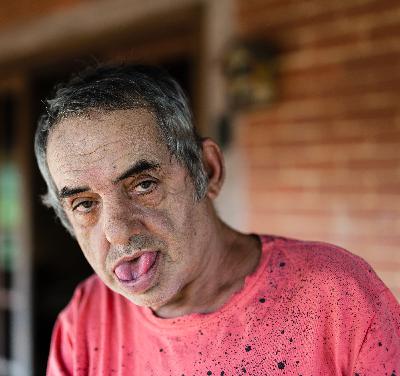Discover RCGP eLearning Podcast
RCGP eLearning Podcast

RCGP eLearning Podcast
Author: RCGP eLearning Podcast
Subscribed: 576Played: 13,379Subscribe
Share
Description
The Royal College of General Practitioners is the professional membership body for family doctors in the UK and overseas. This podcast is produced by the RCGP eLearning and Essential Knowledge Update teams and features discussions with clinical experts about a range of key topics in primary care.
129 Episodes
Reverse
Eczema, also known as atopic dermatitis, is estimated to affect 1 in 5 children and 1 in 10 adults in the UK, making it one of the most prevalent skin conditions experienced across all age groups. It is the leading cause of skin-related disability in the UK and there has been an increased prevalence of eczema in the last 10 years.
In this podcast Dr Thomas Round talks to Dr Khyati Bakhai, a GP in North East London about eczema. They discuss the definition of eczema, as well as the presentation, symptoms, risk factors including family history and other allergies, discussions during consultation, treatments such as emollients, protopics and steroid creams, assessing for infection, referral to secondary care when needed, management of flare ups and shared decision making with patients for ongoing management.
For more information please see:
RCGP eLearning course on Atopic Eczema
RCGP eLearning Hub on Atopic Dermatitis
RCGP Essential Knowledge Update module on Atopic eczema in under 12s & Venous eczema and chronic venous disease
RCGP podcast on Dermatology Podcast: Skin of Colour
RCGP Podcast Feedback
Your feedback plays a crucial role in helping us improve the CPD products and services we offer. We would be grateful if you could please complete our short RCGP Podcast Survey, which will take no more than 5 minutes to complete.
In 2020 the NHS became the world’s first health system to commit to reaching Net Zero and take action to reduce the future impacts of climate change.
Take a walk through London to the Story Garden with Dr Toni Hazell, Deputy Medical Director for eLearning and Dr Liliana Risi, provost and past chair of the RCGP North East London Faculty, a past NHS GP in Tower Hamlets and Associate of Greener Practice to learn more about the topic of Net Zero.
In this podcast we discuss climate health equity, the environmental benefits of social prescribing and preventing illness plant-based diet, all of which are covered within our three recently released eLearning courses, as well as Greener Practice, Singing for breathing and Clean air champions.
RCGP Net Zero Hub
RCGP eLearning modules on:
Climate health equity
The environmental benefits of social prescribing
Preventing illness: plant-based diet
The Story Garden
Correction: Green social prescribing can save the NHS more than £600 million per year and cite.
Metabolic dysfunction-associated steatotic liver disease (MASLD), also known as Non-alcoholic fatty liver disease (NAFLD), is estimated to affect up to 1 in 5 people in the UK. Rates are increasing with rising levels of obesity. Although most cases of MASLD are linked to excess weight, you can develop the disease if you have a healthy weight.
In this podcast, Dr Thomas Round talks to Dr Helen Jarvis, a GP and Clinical lecturer and researcher at Newcastle University with an interest in liver disease about fatty liver disease in primary care.
RCGP. EKU Module on Diagnosis and management of non-alcoholic fatty liver disease. May 2024.
RCGP. Liver Toolkit. June 2025
BSG. BSG Guidelines on the management of abnormal liver blood tests. December 2021.
NICE. NG49. Non-alcoholic fatty liver disease (NAFLD): assessment and management. July 2016 (last reviewed October 2024).
In this podcast, Dr. Liz Angier discusses the GPwER role in allergy and how this would ideally be integrated into the local allergy team, improving service provision for patients. The podcast covers theory training as well as how to gain practical experience, including the ways in which the British Society for Allergy and Clinical Immunology can help to link potential GPwERs with clinical experience. The podcast also covers some wider issues including the need for education in schools and in the food industry. Those who would like to know more about the GPwER role should visit the GPwER page of the RCGP website and click on the allergy framework, or email gpwer@bsaci.org.
An educational grant was received from British Society for Allergy and Clinical Immunology (BSACI) for the production of the podcast. Editorial and content decisions were made solely by the RCGP.
Adenomyosis affects around 10% of women in the UK and is most prevalent in women aged 40-50, particularly those who have had pregnancies. It is frequently found alongside endometriosis and uterine fibroids and can cause heavy, painful, or irregular periods.
In this podcast Dr Thomas Round talks to Dr Sharon Dixon, a GP in Oxford with a background in endometriosis research and supporting GPs with female patients suffering with endometriosis and their periods, about the symptoms, initial assessment, diagnosis and treatment of adenomyosis as well as its possible causes and overlap with endometriosis.
This podcast falls within the Gynaecology and Breast curriculum field.
British Journal of General Practice article on Uterine adenomyosis: an update for GPs
RCGP EKU Programme module on Endometriosis: diagnosis and management
RCGP eLearning course on Endometriosis
RCGP eLearning course on Heavy Menstrual Bleeding
In this 20 minute podcast, Dr Emma Nash speaks to Dr Sally Higginbottom about adverse effects of antipsychotic medication, with a focus on movement disorders and strategies to detect them early in routine practice.
Funding for this podcast was received from Teva Pharmaceuticals. Teva Pharmaceuticals reviewed the content for scientific accuracy and full editorial control remains the sole responsibility of the RCGP.
Cardiovascular disease (CVD) is the leading global cause of death, with an estimated 18 million deaths each year (over 30% of all global deaths). In 2022, around 175,000 people in the UK died from CVD, accounting for about 27% of all deaths — the second most common cause of death after dementia and Alzheimer's disease.
In this podcast, Dr Thomas Round talks to Dr Nicholas Jones, a salaried GP in Oxford with a special interest in cardiology, about primary risk assessment and lipid management in cardiovascular disease.
This podcast falls within the Cardiovascular Health curriculum field.
EKU Programme module on Cardiovascular disease: risk assessment, reduction & lipid modification.
British Journal of General Practice article on Cardiovascular disease — risk assessment and reduction: NICE 2023 update for GPs.
People living with severe mental illness face one of the greatest health equality gaps in England. Their life expectancy is 15–20 years shorter than that for the general population, and this disparity is largely due to preventable physical illnesses.
In this podcast, Dr Thomas Round discusses physical health in people with severe mental illness with Professor Carolyn Chew-Graham, a Professor of General Practice Research at Keele University and a GP in Manchester and Dr David Shiers, Honorary Research Consultant at Psychosis Research Unit and a former GP in North Staffordshire, who became involved in the early intervention reform after his daughter’s experience of a severe psychotic illness.
This podcast falls within the Mental Health curriculum field.
In this podcast Dr. Julie Oliver, chair of the Primary Care Women’s Health Society is interviewed about endometriosis. Starting with the basics of definition and symptoms, the podcast then goes on to discuss more nuanced aspects of care, including decisions about whether to refer or manage empirically, and how to support a patient in primary care while she is on a potentially long list for consultant review. The podcast takes a life course approach, ending with a discussion about management of the menopause in women who have had endometriosis, and the need to remember that symptoms may persist even after apparently definitive surgical treatment.
An educational grant was received from Scottish Government for the production of this podcast. Editorial and content decisions were made solely by the RCGP.
Glucagon-like peptide-1 receptor agonists (GLP-1RAs) are a class of drugs initially developed to treat type 2 diabetes and are now becoming more widely used for obesity. They work by mimicking the actions of the GLP-1 hormone, which is released by the gut after eating. GPs will be used to prescribing them for type 2 diabetes, but less so for obesity.
In this podcast, Dr Thomas Round discusses the evolving role of GLP1-RA in obesity, the benefits and potential side effects, the role of the GP, and the latest NICE guidance in this area with Dr Stephanie DiGiorgio, an urgent care GP with a specialist interest in obesity.
This podcast falls within the Metabolic Problems and Endocrinology curriculum field.
This podcast is part of a Veterans' Health eLearning course, which aims to educate GPs and primary care teams as to why veterans are a special group. In this podcast, Dr Emily Brookes talks to Jon Lynn, a military veteran, about how a veteran patient may present differently in their health-seeking behaviours and how identifying whether a patient is a veteran can enable healthcare professionals to provide good healthcare to this patient group.
The Royal College of General Practitioners has developed the Veteran Friendly GP Accreditation Programme. This programme will improve the healthcare of veterans and their families, by giving a better understanding of the special needs of this population and resources available to help. Thousands of NHS England Practices are now successfully accredited, with numbers of accredited practices rapidly growing. You can find out more about accreditation for your practice here: www.rcgp.org.uk/veterans
Funding for the production of this course was provided by NHS England as part of the RCGP Veteran Friendly Accreditation Programme. Editorial and content decisions were by the RCGP and NHS England.
Boehringer Ingelheim and Lilly Alliance has provided funding towards this independent Programme. The Alliance has had no editorial input into or influence on the agenda, content of this podcast. Editorial and content decisions were made solely by the RCGP.
In this podcast, Dr Emma Nash speaks to Dr Jim Moore, a GP with a special interest in cardiovascular medicine and past president of the Primary Care Cardiovascular Society, about chronic kidney disease. The approach to diagnosis and categorisation is discussed, along with when further investigations or referral may need to be considered. Recognising that the majority of CKD is managed in primary care, Jim explains the key areas to target in terms of optimising outcome and reducing complications, along with how to talk about CKD with patients. He also gives an overview of the most important medications in CKD management, and the key things that GPs need to know about them.
In this podcast, Dr Emma Nash speaks to Dr Laura Patterson about the complications of shingles. Laura tells us about the most common short and long term complications, and also the serious consequences that we need to be vigilant for. The highest risk groups for complications are described, along with the steps we can take to try to prevent them from occurring.
This podcast was initiated and funded by GSK, and the content developed by RCGP. GSK have had no input into the content other than to review for compliance purposes.
Testosterone deficiency in men can often cause erectile dysfunction or loss of libido, and should be considered whenever a man presents with these symptoms. However there are many other symptoms which can be missed. This podcast looks at potential presentations of testosterone deficiency, along with associated conditions, and explores how we might investigate and manage this important problem.
An educational grant was received from Besins Healthcare for the production of this podcast. Editorial and content decisions were made solely by the RCGP.
Bipolar is one of the UK’s commonest long-term conditions with almost as many people living with bipolar as cancer. 1.3 million people in the UK have bipolar, that is one in fifty people. It takes an average 9.5 years to get a correct diagnosis of bipolar disorder and there is a misdiagnosis an average of 3.5 times.
In this podcast Dr Thomas Round, a GP and EKU Clinical Lead, talks with Professor Carolyn Chew-Graham, a GP in Manchester with a research interest in mental health and Professor of General Practice Research at Keele University, about the assessment and management of bipolar disorder.
This podcast falls within the Mental Health curriculum field.
In this 15 minute podcast, Dr Michael Mulholland, RCGP Honorary Secretary, talks to Dr Joy Shacklock, GP and RCGP Clinical Policy Representative for Safeguarding, about the new RCGP safeguarding standards. Joy explains the new document and the drivers behind the updates, as well as the supporting resources and how they can be used. In particular, she highlights the new all-age safeguarding toolkit and how to get the best out of it, along with pointers on safeguarding training and updated revalidation requirements.
This podcast was produced by RCGP Learning. Editorial and content decisions were made solely by the RCGP.
An estimated 10 million people (6 million women, 4 million men) in the UK have osteoarthritis, with an estimated 5.4 million people affected osteoarthritis in the knee and 3.2 million in the hip. An estimated 350,000 people are diagnosed with osteoarthritis each year with a median age of symptom onset of 55 years.
In this podcast Dr Thomas Round, a GP and EKU Clinical Lead, talks with Dr Louise Warburton, a GP with a special interest in musculoskeletal care and rheumatology, Honorary Senior Lecturer at Keele University and Co-president of the Primary Care Rheumatology and Musculoskeletal Medicine Society, about osteoarthritis including risk factors, presentation, clinical history, examination, diagnosis and treatment/self management.
This podcast falls within the Musculoskeletal Health curriculum field.
Sponsored by Pfizer Limited. Pfizer has had no involvement in the editorial component of this educational material. Editorial and content decisions were made solely by the RCGP.
Respiratory syncytial virus (RSV) is an RNA virus which causes respiratory infections; the most significant clinical effects are in infants and people who are elderly and have chronic medical conditions or immunosuppression. In this podcast, Professor Simon de Lusignan from the RCGP’s Research and Surveillance Centre discusses the new RSV vaccination programme, which offers a one-off vaccine to everyone at the age of 75, with an initial catch-up programme between the ages of 75 and 80. He also touches on monoclonal antibodies and antivirals, which are given in secondary care to children who are at high risk of serious complications if they contract RSV.
A person’s risk of developing cancer depends on many factors, including age, genetics, and exposure to risk factors (including some potentially avoidable lifestyle factors).
In this podcast Dr Thomas Round, a GP and EKU Clinical Lead, talks with Dr Nicola Weaver, a GP and Clinical Cancer Lead in Southwark, Southeast London about familial breast cancer including the recent changes to the NICE guideline.
Both the combined and progestin-only pills are highly effective with perfect use, with a failure rate of less than 1%. However, the failure rate with “typical use” is 9%, which accounts for inconsistent or incorrect use.
In this podcast Dr Thomas Round, a GP and EKU Clinical Lead, talks to Dr Toni Hazell, a GP with an interest in women's health and the RCGP Deputy Medical Director for eLearning about the types of combined oral contraception, risk assessment tools e.g. UKMEC, contraindications, individualising pill taking regimes, missed pill rules and common myths.
























